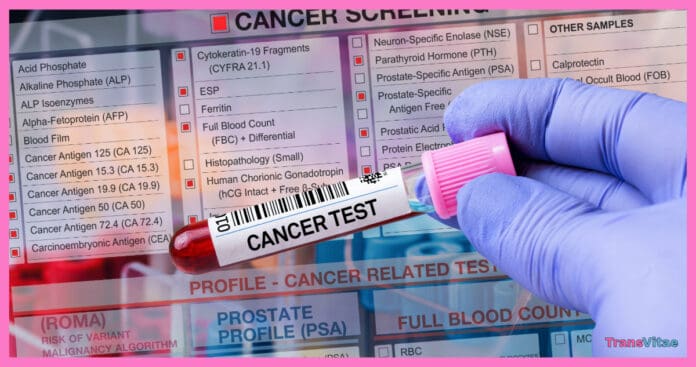Transgender women undergoing hormone therapy may face an increased risk of late-stage prostate cancer detection, according to a recent study. Researchers at Cedars-Sinai Medical Center in Los Angeles have identified a crucial flaw in current prostate cancer screening methods: the effect of estrogen on prostate-specific antigen (PSA) levels.
PSA, a protein produced by the prostate gland, is the primary marker used in blood tests to screen for prostate cancer. Elevated PSA levels often indicate the presence of cancer. However, estrogen therapy, which is a common part of gender-affirming care for transgender women, significantly lowers PSA levels. This could render the traditional threshold for PSA levels—above 4 nanograms per milliliter (ng/mL)—ineffective for early detection in this population.
Dr. Stephen Freedland, chair of prostate cancer at Cedars-Sinai, emphasizes the implications of this finding. “The estrogen that many transgender women take drastically lowers PSA levels, which could mean the threshold we are using as ‘normal’ is too high to detect early-stage cancer in these patients,” he explained. This discrepancy could delay diagnosis until the cancer has progressed to a more life-threatening and difficult-to-treat stage.
The study, published on June 26 in the Journal of the American Medical Association, analyzed the medical records of 210 transgender women from the Veterans Health Administration. These participants, who were taking estrogen and did not have prostate cancer, showed a median PSA value of 0.02 ng/mL. This is fifty times lower than the PSA values typically reported in cisgender men of similar age.
Lead researcher Dr. Farnoosh Nik-Ahd, a urology resident at the University of California, San Francisco, elaborated on the findings. “Transgender women taking estrogen who develop prostate cancer aren’t likely to see their PSA increase enough to trigger a biopsy—at least, not until the cancer is at a later stage.”
The need for additional research is apparent. Dr. Freedland stressed that while this study highlights a significant issue, it is not an immediate call for all transgender women to undergo PSA screening. “We know that PSA screening reduces the risk that cisgender men ages 55 to 69 will die of prostate cancer, but we don’t know that it does the same thing for transgender women taking estrogen,” he noted. However, the study aims to raise awareness among transgender women and healthcare providers about the need for adjusted PSA screening guidelines.
For transgender women taking estrogen, the advice is clear: consult with your healthcare provider about your prostate health. “Don’t forget that you have a prostate and that prostates can become cancerous,” Freedland advised. “The best way we know to find those cancers early and reduce the risk of death is a PSA test. And if you choose to do that, keep in mind that the test values are not calibrated for you. Bring your results—and possibly this study—to your urologist so that your results will be interpreted by someone who understands what to do with that information.”
Understanding prostate cancer in transgender women is vital. As LGBTQIA+ health specialist Dr. Henry Ng explains, “Anyone who has a prostate, including transgender women and nonbinary people assigned male at birth, can get prostate cancer. Even if you’ve had some type of gender-affirming genital surgery, you still likely have a prostate.”
Prostate cancer is one of the most common types of cancer, with the CDC reporting that about 13% of American men will be diagnosed with it during their lifetime. While the risk for transgender women remains under-researched, hormonal changes, such as lower testosterone levels, are believed to potentially lower the risk. Nonetheless, cases of prostate cancer in transgender women have been documented, underscoring the importance of awareness and appropriate screening.
Symptoms of prostate cancer include:
- A frequent and sometimes urgent need to pee (especially at night).
- Weak urine flow or flow that starts and stops.
- Pain or burning when you pee.
- Loss of bladder control and/or bowel control.
- Pain in your lower back, hips, or chest.
- Blood in your urine.
However, some symptoms, such as blood in semen, erectile dysfunction, and painful ejaculation, may be masked or not present in transgender women, especially those on hormone therapy or who have undergone gender-affirming genital surgery.
Transgender women may experience fewer or different symptoms of prostate cancer, possibly leading to a delayed diagnosis. Dr. Ng highlights the importance of finding a healthcare provider who is welcoming and affirming to facilitate open discussions about prostate health.
Currently, there are no specific prostate cancer screening guidelines for transgender women. The American Urological Association suggests that people at risk for prostate cancer, including those with Black ancestry, a strong family history of prostate cancer, or inherited gene mutations, consider regular screenings starting at age 50. Discussions about earlier screenings are warranted if these risk factors are present.
As Dr. Freedland and his team continue their research, the goal is to establish evidence-based screening policies that accurately reflect the needs of transgender women. “As more and more trans women have appropriate access to gender-affirming care, it’s critical not to lose sight of long-term cancer risks in retained organs,” said co-senior author Dr. Matthew R. Cooperberg, a UCSF urology professor.
For now, the takeaway for transgender women is to stay informed and proactive about prostate health. Consult with your healthcare provider, understand the potential implications of hormone therapy on PSA levels, and advocate for screenings that consider your unique health profile. Your well-being is paramount, and early detection is key to effective treatment.


